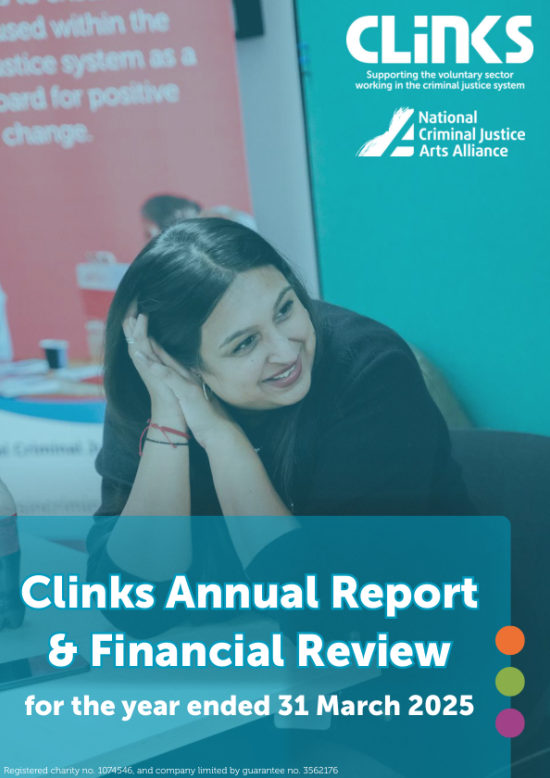On 7th December, the Ministry of Justice (MoJ) published the Prisons Strategy White Paper. White papers are policy documents produced by the government that set out its proposals for future legislation. This one sets out proposals for future changes to the prison estate and prison regimes, many of which will have significant consequences for the way prisons are run over the next decade. The MoJ is seeking feedback on its proposals before 4th February 2022. Here we consider some of its key commitments and how voluntary organisations can respond.
Space and regime go hand in hand
Clearly, our prisons are outdated. It is therefore welcome to see proposals for much needed enhancements, such as upgrading 35,000 cells to modern fire safety standards and delivering digital upgrades to 11 further prisons. However, under these proposals, not only will prisons be enhanced but there will be expansion too, through the “biggest prison-building programme in more than 100 years” and 20,000 more prison places. Clinks continues to advocate strongly that prison is a dead end - the MoJ is continuing in the wrong direction of travel and should instead develop a clear strategy for reducing the number of people in prison.
But a prison service is more than just bricks and mortar. A good prison focusses on the things we all know are so important, including the regime it provides and the support it offers to people in its care. People’s lives are being transformed every day by the voluntary organisations working in our prisons, which is why – while there are welcome commitments to promote rehabilitation and to treat people in prison fairly, safely and decently – it is so disappointing that the role of voluntary organisations in achieving this vision barely gets a mention.
We’re also given some principles on which future prison regimes will be designed. These place an emphasis on a more personalised, structured approach to how people in prison spend their days and let governors make more decisions about how the run their prisons. However, as we set out earlier this year, if regimes will include smaller groups of prisoners, they must not be locked in cells for longer, shutting out staff from voluntary organisations and the vital support they provide.
The paper proposes that ‘league tables' will be published for each prison, setting out how they are performing. This could mean more accountability for prison governors, but – in measuring performance – it is vital that the emphasis is on addressing systemic issues within prisons and improving the wellbeing of prisoners, reducing reoffending and reducing race disparity.
There’s a promise of a new Prisoner Education Service and changes to the work done with people to improve their employability and skills (including employment advisers, video technology for job interviews, and guidance for prisoners and employers on criminal record checks). These look as though they will be beneficial for people with short-term sentences. However, if we focus solely on basic and core skills this will be of little use to people in prison long-term. It could also mean less time for arts and creative activity which we know support people’s wellbeing and can be an important bridge into other services. The MoJ wants feedback on its plans, but unfortunately there’s no consultation questions about the Prisoner Education Service and the gaps it could fill.
A welcome focus on resettlement
The MoJ has committed to work with the Department for Work and Pensions to help every prison leaver, by 2024, to access Universal Credit. Other positive moves to help people resettle after leaving prison include introducing ‘resettlement passports’ which will bring together some of the essentials people need like identification, a CV and bank account.
The voluntary sector has long campaigned to end the practice of releasing people on a Friday, which leaves many people homeless and without enough money for the basics over the weekend. So it’s a huge victory for our members and partners that the MoJ will explore ways to avoid Friday releases.
Five areas of England and Wales, known as probation regions, currently offer 12 weeks of temporary accommodation for prison leavers, and we’re happy to see this offer expanded to all regions.
Supporting those most vulnerable in prison
There is little information here on how the government intends to better support women in prison. There is a pledge to “stabilise women who have substance misuse issues with other complex needs” and a commitment to create a Young Women’s Strategy, but building more women’s prisons certainly does not align with its own ambitions set out in the Female Offender Strategy. The MoJ wants to know, through its consultation, what more can be done to support women in custody, including those with protected characteristics.
There is no focus on addressing the stark levels of disproportionality for racially minoritised people in prison, and no recognition for the unequal outcomes they face. This is extremely concerning – any future prison strategy should have equality and fairness at its core. Instead, these proposals could mean these outcomes get worse. Given that racially minoritised people are more likely to be punished for prison rule breaking, the plans to fast-track these decisions (called adjudications) will have an unequal impact. We will work with specialist organisations in our feedback to the government to urge it to consider existing racial disparity in prisons.
Given the significant number of 18-24 year olds in custody, it is also disappointing to see no mention of the HM Prisons and Probation Service’s young adult strategy and how that will support an improved prison system into the future.
The government hopes that its new cross-government drugs strategy will help support people with substance misuse issues, and this white paper focusses on delivering adequate drug and mental health treatment both in prison and on release, delivering more of these services. Although this support is welcome, the ‘zero-tolerance’ approach to drugs described here, and the focus on abstinence, could signal less of a focus on giving people the effective, person-centred and holistic support that best supports people facing these issues. Again, there’s no questions about this approach in the government’s consultation. We hope it will work constructively with the voluntary sector to effectively implement its drugs strategy.
Share your views with the Ministry of Justice
When the prospect of a prisons white paper was first announced earlier this year, Clinks attended meetings with government officials, at which we urged the MoJ and HMPPS to engage with voluntary organisations to establish full and proper mechanisms for a wider consultation to inform the development of this work. The prison policy team at the MoJ also heard from members of the Reducing Reoffending Third Sector Advisory Group (RR3) at its September meeting. But the government has not given voluntary organisations any formal opportunities to contribute.
Clinks recently wrote to prisons and probation minister Victoria Atkins to seek clarification on whether there would be a consultation and the process for responses. We are therefore pleased to see the MoJ include 19 consultation questions in the white paper and an 8 week period to submit evidence. Clinks will be reaching out and working with members to respond over the coming weeks, and we encourage as many voluntary organisations working in the criminal justice system as possible to submit evidence too before the 4th February deadline. Find out how to respond here.
What's new
Blogs
Anne Fox CEO of Clinks to stand down after a decade of service
Latest on X
The role is for a leader from an organisation focused on racially minoritised people, with expertise in service delivery, policy, advocacy, or related areas in criminal justice. Racial disparities are present at every CJS stage. This role ensures these voices are central in shaping policy to help address and eradicate them. Apply by Mon 18 Nov, 10am. More info: https://www.clinks.org/voluntary-community-sector/vacancies/15566 #CriminalJustice #RR3 #RacialEquity

